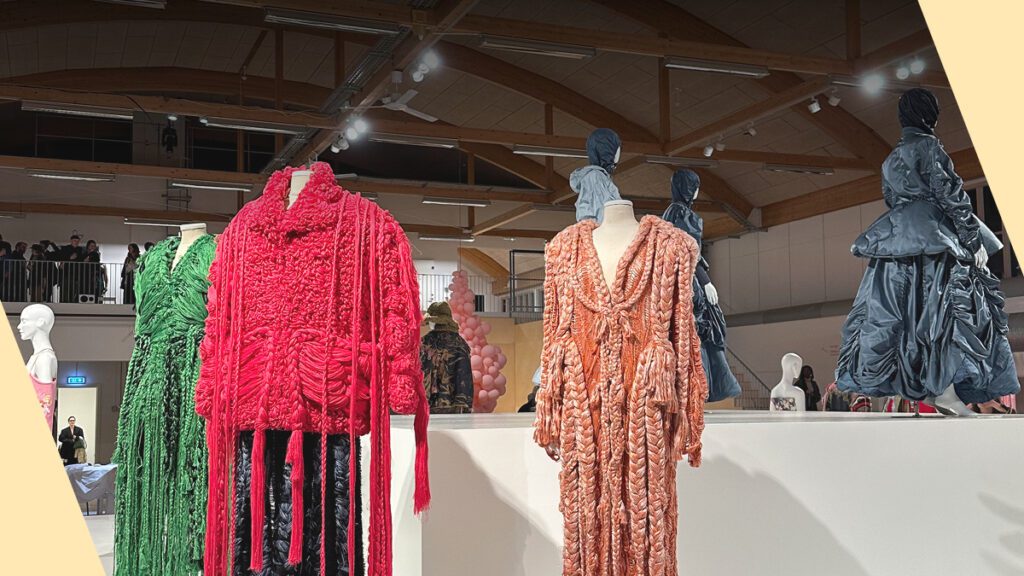Runway Role Models: Copenhagen Fashion Week
CPHFW is distinguished for both the covetable Scandi style it showcases as well as its rigorous sustainability strategy.

Runway Role Models: Copenhagen Fashion Week
CPHFW is distinguished for both the covetable Scandi style it showcases as well as its rigorous sustainability strategy.

Fashion weeks around the world can be characterised by creativity, commerce and consumption at all costs. Whilst this may remain the case for the ‘Big Four’ fashion weeks, over the last few years Copenhagen Fashion Week (CPHFW) has firmly cemented itself as a frontrunner for the fifth spot, not least because it is flipping the script on the conventional approach. The Danish capital is distinguished for both the covetable Scandi style it showcases as well as its rigorous sustainability strategy. Despite being a smaller fashion week, its comprehensive brand standards and bold actions are certainly no narrow feat.
First outlined in the 2020 Sustainability Action Plan, this season, CPHFW’s 18 minimum Sustainability Requirements came into effect for the first time. These standards encompass everything from; supply chain due diligence and utilising at least 50% certified, deadstock, preferred, upcycled, new-generation or recycled materials in all collections, to using zero-waste show sets and not destroying unsold garments. Brands that fail to meet these standards are unable to showcase. Cecilie Thorsmark, CEO, Copenhagen Fashion Week, told Vogue that this framework has indeed accelerated change and CPHFW will continue to assess and increase standards in accordance with the industry landscape and legislation.
CPHFW worked closely with the brands ahead of the implementation of the requirements, making this yet another example of the crucial role collaboration and alliances play in the sustainability movement. Not dissimilar to B Corp certification, meeting the sustainability requirements is based upon self-reporting with the support of a consulting partner for assessment. Currently no external audits are made.
GFA’s Associate Partner, Zalando, once again presented its prestigious sustainability award. The initiative champions the brands that drive positive change and this season’s recipient was the brand STAMM. The brand will subsequently receive €20,000 and the opportunity to collaborate on an exclusive collection with Zalando – leveraging sustainable materials, production and distribution methods. The jury were reportedly impressed by the brands use of recycled down in the puffer jackets and Indian Khadi, a heritage textile comprised of organic hand spun cotton. Explore the finalists in the Zalando Greenhouse.
For future editions of the award, we can expect brands to focus on collaboration across the ‘glocal’ supply chain as well as with material innovators. We’ll see more leveraging of circular design beyond production – considering the longevity, technical durability and recyclability of products. Finally, in an increasingly regulated space, product claims will need to be backed up with meticulous credentials – a challenge for both the sustainability and the fashionability of future collections for designers at all levels.
The A/W 23 Showcase from another of GFA’s Associate Partners, Ganni, was the first since they became a certified B Corp. Ganni is renowned for its honest approach around ‘not being a sustainable brand’, acknowledging that it is on a journey towards progress and change. Vogue reported that every style in this collection featured at least 50% certified recycled, lower-impact or organic materials and it introduced a new bag made from orange and cacti waste. This is in line with Ganni’s overall ambition to phase-out virgin leather by the end of the year.
CPHFW and Global Fashion Summit were formerly factions of the Danish Fashion Institute. When the first Summit (then, Copenhagen Fashion Summit) was held in connection with the UN Climate Change Conference COP15 in 2009, sustainability was still a rather new phenomenon in the fashion industry and often viewed as a philanthropic endeavour. Through years of inspiring and mobilising leaders, sustainability was placed firmly on the fashion agenda. In 2018, Danish Fashion institute was renamed ‘Global Fashion Agenda’ to focus exclusively on sustainability and CPHFW became an independent company. Both organisations have continued to prosper in parallel based on this strong sustainability ethos, and GFA proudly supports the continued advancements that CPHFW has made.
Fashion shows hold deep, cultural significance, communicating innovative concepts in unique ways. Contentious as they can be, their impact is minimal in comparison to that of broader fashion production. Why not harness this influence and make the next runway moment one with sustainability for people and planet at the forefront? And most importantly, beyond the fleeting escapades of the runway, let’s work to ensure that social and environmental justice are prioritised behind the scenes too.
This industry relies on case studies to showcase that responsible fashion is achievable without compromising on creativity. We hope that the actions of this influential Scandinavian country will reverberate, inspiring similar approaches worldwide. Raising awareness and presenting creative vanguards must prompt and galvanize people to develop cutting-edge solutions. Let Copenhagen be a role model and blueprint for future fashion weeks, the brands involved and citizens.